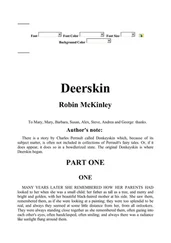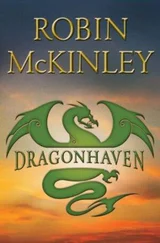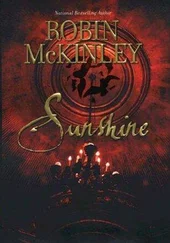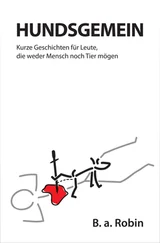Robin McKinley - Water
Здесь есть возможность читать онлайн «Robin McKinley - Water» весь текст электронной книги совершенно бесплатно (целиком полную версию без сокращений). В некоторых случаях можно слушать аудио, скачать через торрент в формате fb2 и присутствует краткое содержание. Год выпуска: 2002, ISBN: 2002, Издательство: Firebird, Жанр: Старинная литература, на английском языке. Описание произведения, (предисловие) а так же отзывы посетителей доступны на портале библиотеки ЛибКат.
- Название:Water
- Автор:
- Издательство:Firebird
- Жанр:
- Год:2002
- ISBN:9780142402443
- Рейтинг книги:4 / 5. Голосов: 1
-
Избранное:Добавить в избранное
- Отзывы:
-
Ваша оценка:
- 80
- 1
- 2
- 3
- 4
- 5
Water: краткое содержание, описание и аннотация
Предлагаем к чтению аннотацию, описание, краткое содержание или предисловие (зависит от того, что написал сам автор книги «Water»). Если вы не нашли необходимую информацию о книге — напишите в комментариях, мы постараемся отыскать её.
Water — читать онлайн бесплатно полную книгу (весь текст) целиком
Ниже представлен текст книги, разбитый по страницам. Система сохранения места последней прочитанной страницы, позволяет с удобством читать онлайн бесплатно книгу «Water», без необходимости каждый раз заново искать на чём Вы остановились. Поставьте закладку, и сможете в любой момент перейти на страницу, на которой закончили чтение.
Интервал:
Закладка:
She was in a—a cave, with rocky sides and a sandy floor. There were niches in the walls where oil lamps sat. She knew that smoky, golden light from power cuts at home. When she had been younger and her great-grandfather’s little town had not yet been swallowed up by Mauncester’s suburbs, there had been power cuts often. That was when her mother still got out of bed most days, and her grandmother used to read to Hetta during the evenings with no electricity, saying that stories were the best things to keep the night outside where it belonged. Cleaning the old oil lamps and laying out candles and matches as she had done the night before last still made her hear her grandmother saying Once upon a time. . . . The only complaint Hetta had ever had about her grandmother’s stories was that they rarely had deserts in them. Hetta had to blink her eyes against sudden tears.
A cave, she thought, a cave with a sand floor. She looked down at glinting mirror-fragments, like those she had found in the folds of her sheets two nights ago.
I have never heard of Roanshire or the Homeland, or Mauncester. The storm brought you far indeed. This is the land called Damar, and you stand at the fourth Sandpale at the edge of the Great Desert we call Kalarsham.
Her scalp contracted as if someone had seized her hair and twisted it. She gasped, and the cup was taken away and the arm grasped her more firmly. “You have drunk too much, it is very strong,” said the voice at her ear; but it was not the liquor that shook her. She sat up and swung her feet round to put them on the floor—there was a bandage tied around one ankle—the supporting arm allowed this reluctantly. She turned her head to look at its owner and saw the man who had rescued her from the sandstorm two nights ago, in her dream. “Where am I?” she said. “I cannot be here. I do not want to go home. I have dreamed this. Oh, I do not want this to be a dream!”
The man said gently, “You are safe here. This is no dream-place, although you may dream the journey. It is as real as you are. It has stood hundreds of years and through many sandstorms—although I admit this one is unusual even in the history of this sanctuary.”
“You don’t understand,” she began, and then she laughed a little, miserably: she was arguing with her own dream-creature.
He smiled at her. “Tell me what I do not understand. What I understand is that you nearly died, outside, a little while ago, because your Watcher almost failed to see you. This is enough to confuse anyone’s mind. Try not to distress yourself. Have another sip of the tiarhk. It is good for such confusions, and such distress.”
She took the cup from him and tasted its contents again. Again warmth and tranquility slid through her, but she could feel her own nature fighting against them, as it had when the doctor had prescribed sleeping pills for her a few years ago. She had had to stop taking the pills. She laced her fingers round the cup and tried to let the tiarhk do its work. She took a deep breath. The air was spicy sweet, and again she felt the little stir of breeze; where was the vent that let the air in and kept the dangerous sand-tides out?
“Tell me a little about this place,” she said.
He sat back, willing to allow her time to compose herself. “This is the fourth of the Eleven Sandpales that King Tor the Just and Powerful set round the Great Desert Kalarsham some years after the battle of the Hero’s Crown and the second and final death of Maur, when it became evident that no easy cure for the desert would be found and that Damar’s ancient forest was gone forever, and Geljdreth, the sand-god, would rule us if we let him. This Fourth Pale is called Horontolopar in the Old Tongue, and I am its Watcher, Zasharan, fifteenth of that line, for it was my father’s mother’s mother’s father’s”—his voice fell into a singsong and she did not count, but she guessed he named fourteen forebears exactly—“mother, who was first called Zasharanth, and installed by Tor himself, and kissed by Queen Aerin, who wished her luck forever. And we have had luck”—he took a deep sigh—“even tonight, for I did find you, though it was a narrow thing. Much too narrow. I would like you to tell me more about Roanshire, and Mauncester, where you are from, and how you came to be in such state, for no guide would have led or sent you so, and my eye tells me you were alone.”
“Your eye?” she said.
“My Eye,” he replied, and this time she heard. “I will show you, if you wish. The Eye may see more to this puzzle that you are: how it is that a sandstorm should have come from nowhere to bring you, and yet pursue you across my doorstep so viciously that the wound it laid open on your leg took eight stitches to close. My Eye lies in the place where I Watch, and it is much of how I do what I am here to do. It is only Aerin’s Luck that I looked tonight, for this is an unsettled season, and no one has set out from Thaar in weeks. Perhaps you did not come from Thaar.”
She laughed, although it hurt her. “No, I did not come from Thaar. And—and I have gone away—and come back. The storm—you brought me here two nights ago.”
He looked at her calmly. “You have not been here above an hour. You fainted, and I took the opportunity to dress your leg. Then you woke.”
She was silent a moment. Her head swam, and she did not think another sip of tiarhk was advisable. “Are you alone here?”
He looked astonished. “Alone? Certainly not. Rarely does anyone else come to this end of the citadel, for I am the Watcher, and no other has reason to know of the desert door I brought you through. But there are some few of us, and the caves run far up into the Hills, and where they come out there is the filanon town Sunbarghon, although you would not find it unless they decided to allow you to, and Ynorkgindal, where they ring the Border, that the music of their bells may help keep us safe from the North, and the dlor Gzanforyar, which is mastered by my good friend Rohk. Perhaps you will meet him one day—” He blinked and gave a tiny shiver, and said, “Forgive me, lady, that was presumptuous.”
She shook her head. “I should like to meet him,” she said, but she heard in her voice that she believed there would be no such meeting. Zasharan heard ittoo, and turned his face a little away from her, and she saw how stiffly he sat. Her first thought was that she had offended him, but she remembered, Forgive me, lady, that was presumptuous, and before she could think, had reached to touch his arm. “But I would like to meet your friend, and see the caves, and your Eye, and—” She stopped. How long would the dream last this time?
He turned back to her. “There is something strange about you, I know that, and I see—I think I see—I—” He looked down at her hand on his arm, which she hastily removed. “You trouble me, lady. May I have your name?”
“Hetta,” she said.
“Hetthar,” he said. “Do you think you can stand, and walk? Do you wish food first? For I would like you to come to the place of my Eye, where I think you and I may both be able to see more plainly.”
“I am not hungry,” she said, and tried to stand; but as she did, her head swam, and Zasharan and the room began to fade, and she began to smell wood shavings and wet tarmac. “The sand!” she cried. “The sand!” And just before she lost consciousness, she flung herself on the floor of Zasharan’s cave, and scrabbled at the sand with her hands.
She woke lying on her back again, her hands upon her stomach, but her hands were shut into fists, and the backs of them hurt up into her forearms, as if she had been squeezing them closed for a long time. With some difficulty she unbent the fingers, and two tiny palmfuls of sand poured out upon her nightdress. Slowly, slowly she sat up, pulling up folds of her nightdress to enclose the sand. She stood, clutching the front of her nightdress together, and went to her chest of drawers. She had been allowed to move into this room, which had been her grandmother’s, when her grandmother died, but she had always been too busy—or too aware of herself as interloper—to disarrange any of her grandmother’s things that weren’t actively in her way. But they were friendly things, and once the first shock of grief was over, she liked having them there, reminding her of her gran, and no longer wondered if it might be disrespectful to keep them as they were. On the top of the chest there was an assortment of little lidded boxes and jars that had once held such things as bobby pins and cotton balls and powder, and were now empty. She chose one and carefully transferred the sand into it. She stood looking at its lid for a moment. She had chosen this one because it had a pretty curl of dianthus flower and leaf painted on its surface; her gran’s dianthus still bloomed in the garden. She lifted the lid to reassure herself that the sand was still there—that it hadn’t disappeared as soon as she closed the box—and for a moment, faint but unmistakable, she smelled the spicy smell of Zasharan’s cave, and tiarhk.
Читать дальшеИнтервал:
Закладка:
Похожие книги на «Water»
Представляем Вашему вниманию похожие книги на «Water» списком для выбора. Мы отобрали схожую по названию и смыслу литературу в надежде предоставить читателям больше вариантов отыскать новые, интересные, ещё непрочитанные произведения.
Обсуждение, отзывы о книге «Water» и просто собственные мнения читателей. Оставьте ваши комментарии, напишите, что Вы думаете о произведении, его смысле или главных героях. Укажите что конкретно понравилось, а что нет, и почему Вы так считаете.












